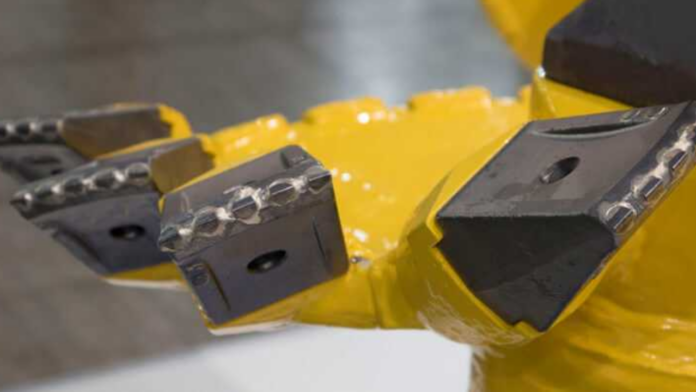Mining drilling bits are essential equipment used to remove coal from the Earth’s crust. By cutting through several layers of rock and sediment, these specialized drill bits are meant to access the coal seams, which are rich in coal resources. The efficacy and efficiency of these drill bits are essential for coal mining operations to be both safe and productive overall.
For coal mining operations, dependable and efficient drilling tools are essential. They influence productivity and total mining costs by deciding how quickly and efficiently the mining drill operation moves forward. A well-chosen drilling bit can maximize coal reserve extraction, minimize wear and tear on drilling machinery, and increase penetration rates.
Working Process of Mining Drill Bits
The creation of novel drilling bit designs and materials helps to increase drilling performance and enhance miners’ safety as coal mining operations continue to progress technologically.
Several steps, including the use of specialized drilling bits, are involved in the coal mine drilling process. Here’s a broad rundown of how things operate:
Exploration and Planning
To find possible coal reserves, geological surveys, and studies are carried out prior to the start of any mining drilling. This includes assessing the optimum places to drill, locating coal seams, and evaluating geological forms. Even though this is a challenging process, the end result is fascinating.
Setting up the Site
Drilling must be done at a potential mining site after one has been found. To make drilling operations easier, access roads, drilling pads, and other infrastructure are built. Therefore, the exploration of the site is necessary for finding a suitable place that can match the desired site.
Setting up Drilling Rig
At the location, a drilling rig is delivered. Large and multi-component, the rig is designed to make drilling easier. It comes with a drill pipe, a drilling bit, a hoisting system, and a rotating system. And some other necessary equipment is also used according to need.
Drilling
A drill pipe and bit are inserted into the earth to start the drilling procedure. The cutting instrument at the end of the drill pipe, the drill bit, is made especially to cut through coal formations and rock. In order to shatter and cut the rock, the drill bit is subjected to force and rotation from the drilling rig.
Drilling Parameters
Different parameters, including rotation speed, feed pressure, drilling speed, and cooling water flow, govern the drilling process. Depending on the type of coal and rock required, these parameters can be changed to maximize drilling efficiency.
Core Sampling
Periodically, core samples are taken while the hole is being drilled. These core samples offer important insights into the surrounding rock formations and the quality and thickness of the coal seams. This core sampling made the subsequent proceedings much easier.
Casing
After the core sampling, steel casing pipes may be inserted as the drill descends more to strengthen the drilled hole and keep it from collapsing. This may be challenging, but it is necessary for further proceedings.
Extracting Coal
After the coal seams have been located and evaluated following the completion of the drilling operation, the mining process itself starts. Depending on the location and depth of the coal deposit, this could entail open-pit mining, underground mining, or other techniques.
Environmental Protection
Measures to lessen the impact on the environment are implemented during the drilling and mining processes. These include stabilizing the soil, disposing of drilling mud properly, and reclaiming the areas that have been mined.
Continuous Monitoring
Drilling operations are constantly observed to guarantee effectiveness and safety. To optimize drilling operations and collect data in real time, advanced equipment and technology might be employed. Continuous monitoring allows you to determine which parameters are still required.
Conclusion
It’s crucial to remember that the precise drilling methods and tools used can change based on the geology, coal seam depth, and mining company policies. Strict adherence to safety protocols and laws is also maintained to guarantee employee welfare and reduce environmental damage.







